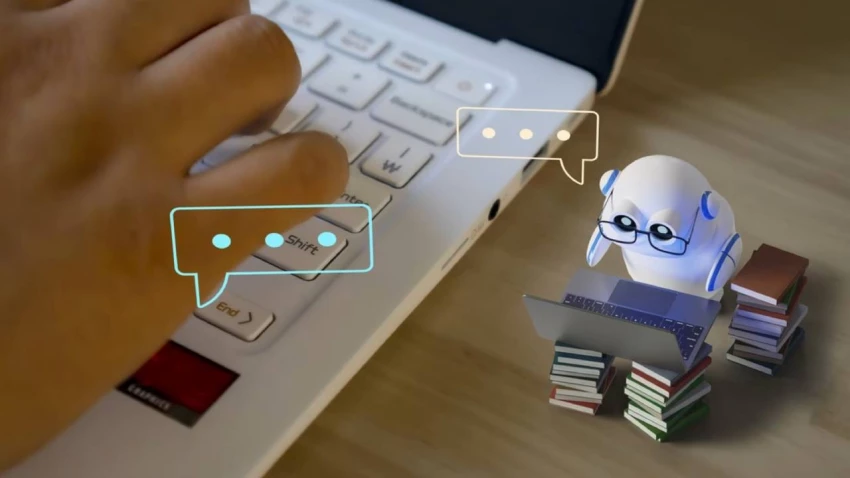

In a professional landscape defined by rapid technological change and shifting job roles, learning is no longer a phase, it’s a career-long process. But traditional e-learning models have long struggled to offer the kind of tailored experiences that individuals need to truly thrive. Enter artificial intelligence. With the integration of AI, online learning platforms are evolving from static content repositories into dynamic engines of career progression. These intelligent systems learn from users, adapt to their unique needs, and help build individualized pathways to success. At the heart of this revolution is a simple premise: learning should serve not only where you are but also where you want to go.
Rather than functioning as passive resources, AI-powered learning platforms are becoming proactive partners in personal growth. These systems use predictive modeling to estimate how a learner’s current skills could evolve and where they might be most valuable in the future. For instance, someone developing project management skills might be guided toward learning stakeholder communication and business analysis based on industry patterns. This "career co-pilot" function means learners are no longer left to navigate blindly, they are offered real-time course corrections that align with personal aspirations and market evolution.

The core of AI-driven learning personalization lies in its ability to detect and respond to individual learning preferences. Whether you're someone who absorbs information through storytelling, data visuals, or interactive experiences, adaptive algorithms adjust content delivery in real time. By tracking how long learners engage with certain types of material and where they tend to struggle or succeed, AI refines the educational approach constantly. According to Alex L., founder of StudyX, "The beauty of adaptive learning is that it acknowledges that every learner has a unique rhythm. AI allows platforms to adjust in real time, so if someone learns better through visuals or problem-solving, the platform evolves to match them rather than the other way around." This personalization isn’t cosmetic, it dramatically improves retention rates and overall learner satisfaction. No two learners receive the same path, and that’s precisely the point.
A major flaw of many legacy platforms was content overload, users didn’t know where to begin or how each course fit into a broader goal. AI now solves this by creating dynamic learning maps. Based on a user’s goals, professional history, skill level, and market needs, AI generates sequenced learning paths with checkpoints, projected outcomes, and even salary potential. These learning journeys help transform sporadic educational efforts into a strategic progression that aligns with industry needs and personal aspirations, making every click a step forward. As Eduard Tupikov, CMO at Coursiv, explains, “AI-driven learning systems are becoming better at identifying not just where someone is today, but where they can go with the right sequence of learning. It’s no longer about endless content, it’s about curating a roadmap that turns knowledge into actual career mobility.”
AI doesn’t just suggest what to learn; it pinpoints what you’re missing. By comparing a learner’s current competencies with the requirements of targeted job roles or promotions, AI tools can identify specific skill gaps. This precision allows learners to focus their energy on what matters most. For instance, if someone in digital marketing wants to pivot into product management, the platform might highlight necessary skills in Agile methodology, stakeholder alignment, and data analytics. These tailored insights turn vague ambitions into clear, achievable steps.
Gone are the days when learners had to wait until the end of a module to know how they were doing. AI allows for ongoing assessment through micro-quizzes, behavioral cues, and interaction tracking. If a user repeatedly pauses during certain types of content or replays a section, the system can infer confusion and offer supplementary material. This type of in-the-moment feedback boosts confidence and encourages deeper engagement. It also supports a growth mindset, where mistakes are opportunities to improve rather than markers of failure.
AI systems are becoming increasingly adept at using behavioral analytics to inform learning design. By monitoring time-on-task, dropout patterns, content preferences, and even eye-tracking or mouse movements in some advanced systems, platforms can understand not just what learners are doing, but why. These insights allow platforms to implement nudges grounded in learning psychology, such as spaced repetition, interleaving, and gamified reinforcement, that improve long-term memory retention and learning effectiveness. Over time, the system becomes more attuned to what motivates and engages the individual.
AI-powered platforms now integrate real-time labor market data into their algorithms, connecting learning with opportunity. By scraping millions of job listings and analyzing skills demand across industries, platforms can inform users which competencies are rising or declining in value. This allows learners to pivot or double down on skill development in areas with the greatest payoff. Michael Jensen, CMO at Forsikringssiden, notes, "The connection between learning and labor market data is becoming critical. AI gives learners a clearer picture of what’s in demand, which means time spent on upskilling is far more likely to result in real opportunities." Someone considering a shift into cybersecurity, for instance, could see demand rising for cloud-based threat detection and AI-driven forensics, guiding their course selection accordingly.
Not all certifications carry equal weight. AI helps learners identify which credentials have the most impact within specific industries, companies, or regions. This goes beyond simply taking a course, it’s about building a resume that resonates with employers. For instance, AI may detect that Google’s Data Analytics certificate is more valued in the tech startup sector, while PMP certification carries more weight in enterprise project management. This level of strategic insight ensures that every hour invested in learning translates to meaningful recognition in the job market.
Learning isn’t only about content, it’s also about community. AI is helping learners find mentors, peers, and collaborators through data-matching based on professional interests, learning styles, communication preferences, and career goals. This goes beyond basic forums or discussion boards. For instance, a mid-career engineer learning product management might be connected to a senior PM in their region who’s willing to mentor. These relationships, facilitated intelligently, add a human layer to digital learning, transforming platforms into ecosystems of career support.
AI-powered gamification engines are now more nuanced than ever. Instead of static points and badges, these systems analyze how users respond to different motivational cues. One user might thrive on social recognition and perform better in group challenges, while another might respond better to solo missions and progress tracking. AI adapts the gamification strategy based on these preferences, ensuring that engagement stays high throughout the learning journey. Personalized motivation isn’t just a feature, it’s a retention strategy grounded in psychological insights.
Many modern learning platforms now offer interactive, AI-generated simulations that replicate real-world scenarios. Whether it’s diagnosing a patient in a medical setting, negotiating a deal in a sales simulation, or debugging a software application, these hands-on challenges allow learners to practice in a safe yet realistic environment. The AI tracks decision-making processes, measures efficiency, and offers detailed feedback, making the simulated experience a powerful tool for skill application and confidence building. These aren't just tests, they’re rehearsals for the actual job.
As more users from diverse regions join global learning platforms, AI is being used to localize content not just linguistically but culturally. This includes adapting examples, case studies, idioms, and even instructional tone to resonate with different audiences. For instance, an entrepreneurial course might emphasize Silicon Valley principles for U.S. users but take a more frugal innovation approach for learners in South Asia. This cultural customization deepens engagement and ensures that learning is both accessible and relevant worldwide.
AI is also breaking barriers for learners with disabilities or special needs. Voice-controlled navigation, real-time subtitles, cognitive load balancing, and interface adjustments are just a few examples of how AI enhances accessibility. Platforms can detect when a learner might be struggling with content due to neurodiverse needs or physical impairments and offer alternative formats, pacing options, or assistive technologies. Drew Anagnostou, CEO of Sacred Journey Recovery, emphasizes, "True personalization isn’t just about efficiency, it’s about empathy. When AI is used to make learning more accessible to individuals with cognitive or emotional challenges, it becomes a tool for dignity as much as for growth." This inclusivity ensures that AI-powered learning is a tool for equity as much as it is for efficiency.
With increased personalization comes increased responsibility. AI systems must be transparent and ethical in how they collect, use, and store learner data. Today’s leading platforms are incorporating privacy-first design, giving users control over what’s tracked and how it’s applied. Clear consent mechanisms, data anonymization, and explainable AI outputs are becoming the standard. As learners place their trust in AI systems to shape their career journeys, ensuring privacy and fairness is not just ethical, it’s foundational.
The learning experience of tomorrow is being built today, quietly and powerfully, through artificial intelligence. From tailored pathways and adaptive content to real-time market analysis and simulated practice, AI is turning education into an engine for individualized career acceleration. This isn’t about replacing human effort; it’s about augmenting it with intelligence, context, and foresight. As AI-powered platforms continue to refine how we learn, they are also redefining how we grow, not just in knowledge, but in confidence, capability, and career fulfillment.
Be the first to post comment!